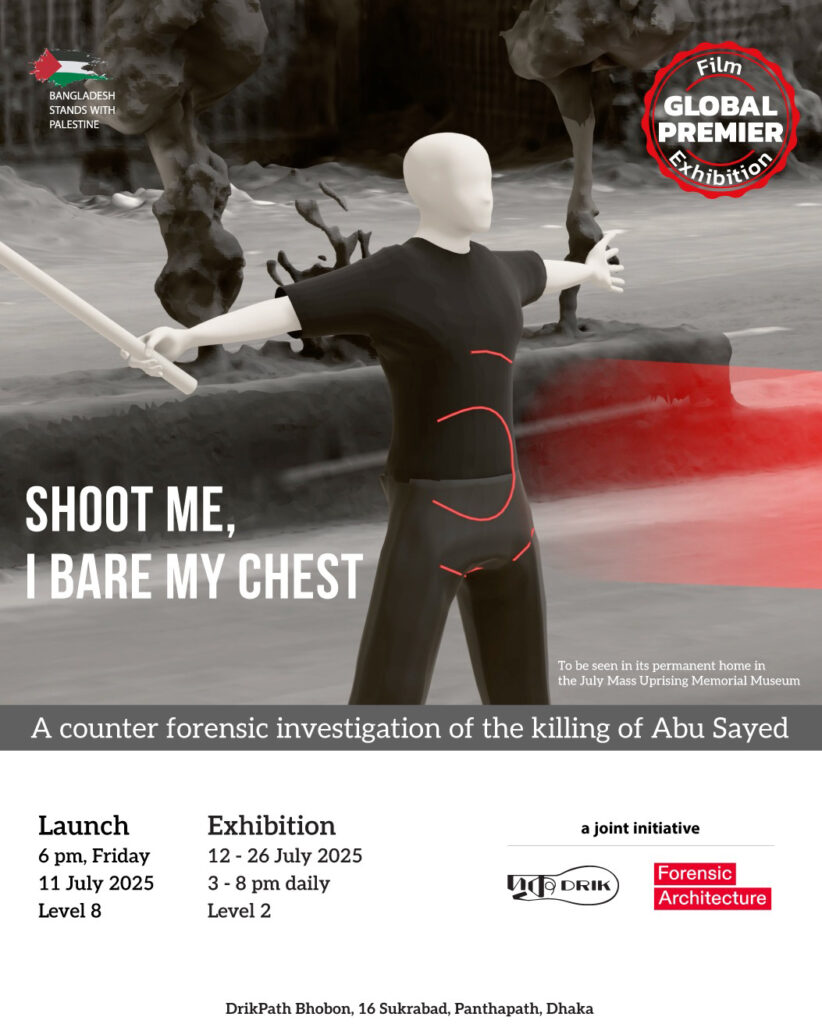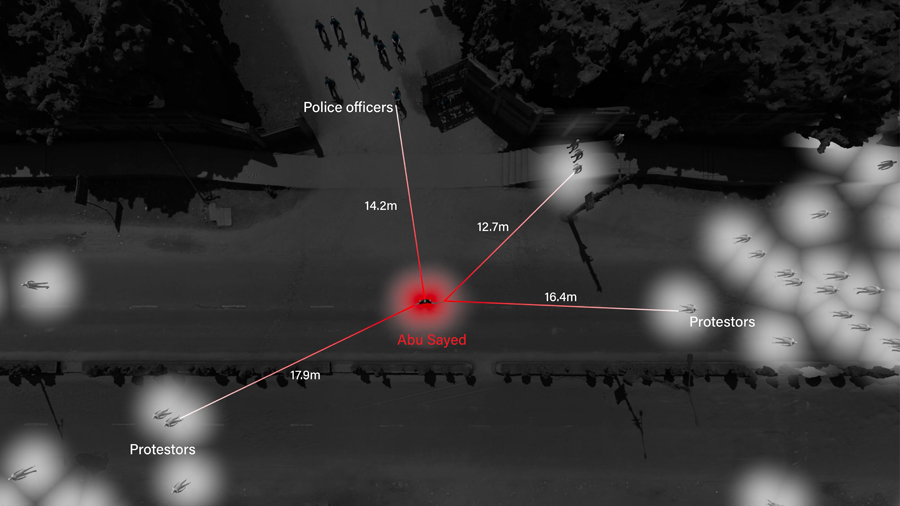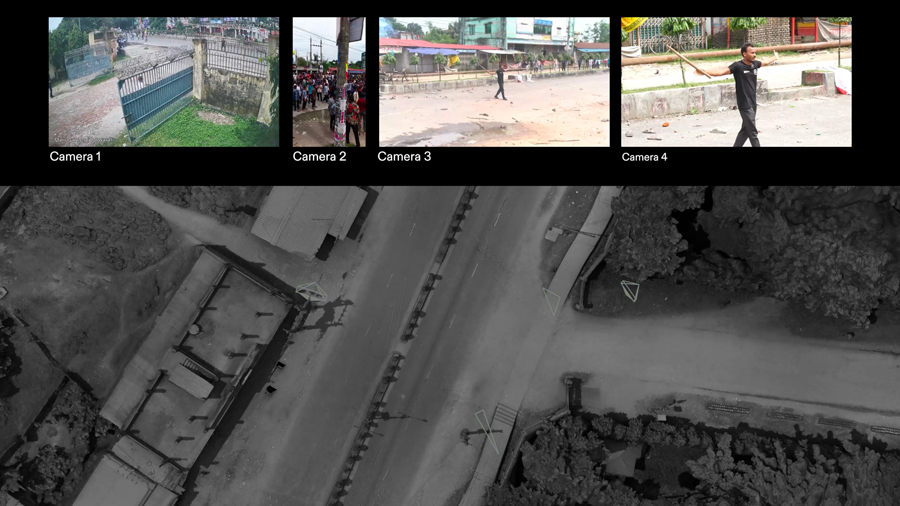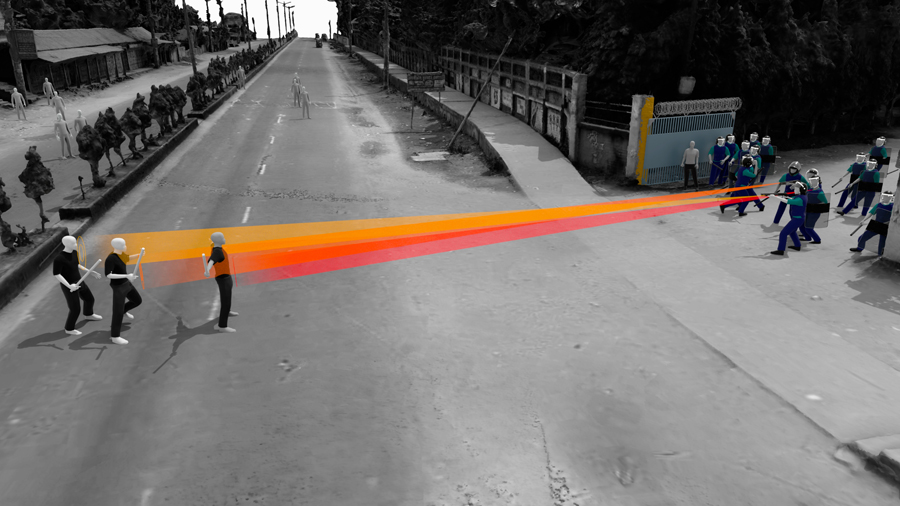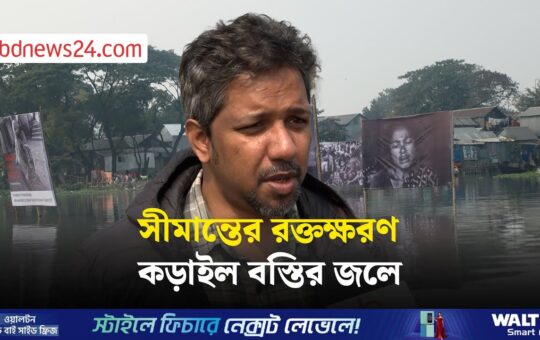Shoot me, I bare my chest. The killing of Abu Sayed.
In the summer of 2024, Bangladesh was rocked by a series of anti-government protests that would come to be known as the July Revolution. What began as student-led demonstrations calling for reforms to the government’s controversial job-quota system grew rapidly into a nationwide uprising in response to the ruling party’s efforts to suppress the first wave of protests through authoritarian crackdowns and escalating violence.
A UN report estimates that as many as 1,400 people were killed during these protests, by police, paramilitary forces, and members of the student wing of the Awami League, Bangladesh’s ruling party.
On 16 July 2024, during one of the deadliest weeks of the uprising, a student at Begum Rokeya University in Rangpur, Abu Sayed, was fatally shot by police during a protest outside the university campus. His death, and the circumstances surrounding it, soon became a symbol of resistance against the Bangladeshi state’s disproportionate use of force in response to the protests. The slogan ‘Buk petechi guli kor’ (‘Shoot me, I bare my chest’), which had emerged within a nationwide movement against sexual violence in 2020, came to also stand for Sayed’s death and all it represented, signalling his defiant posture—arms spread, chest bared—in the moments before he was shot.
Forensic Architecture Analysis Report :
https://forensic-architecture.org/investigation/the-killing-of-abu-sayed
Forensic Analysis Video: A counter forensic investigation of the killing of Abu Sayed


